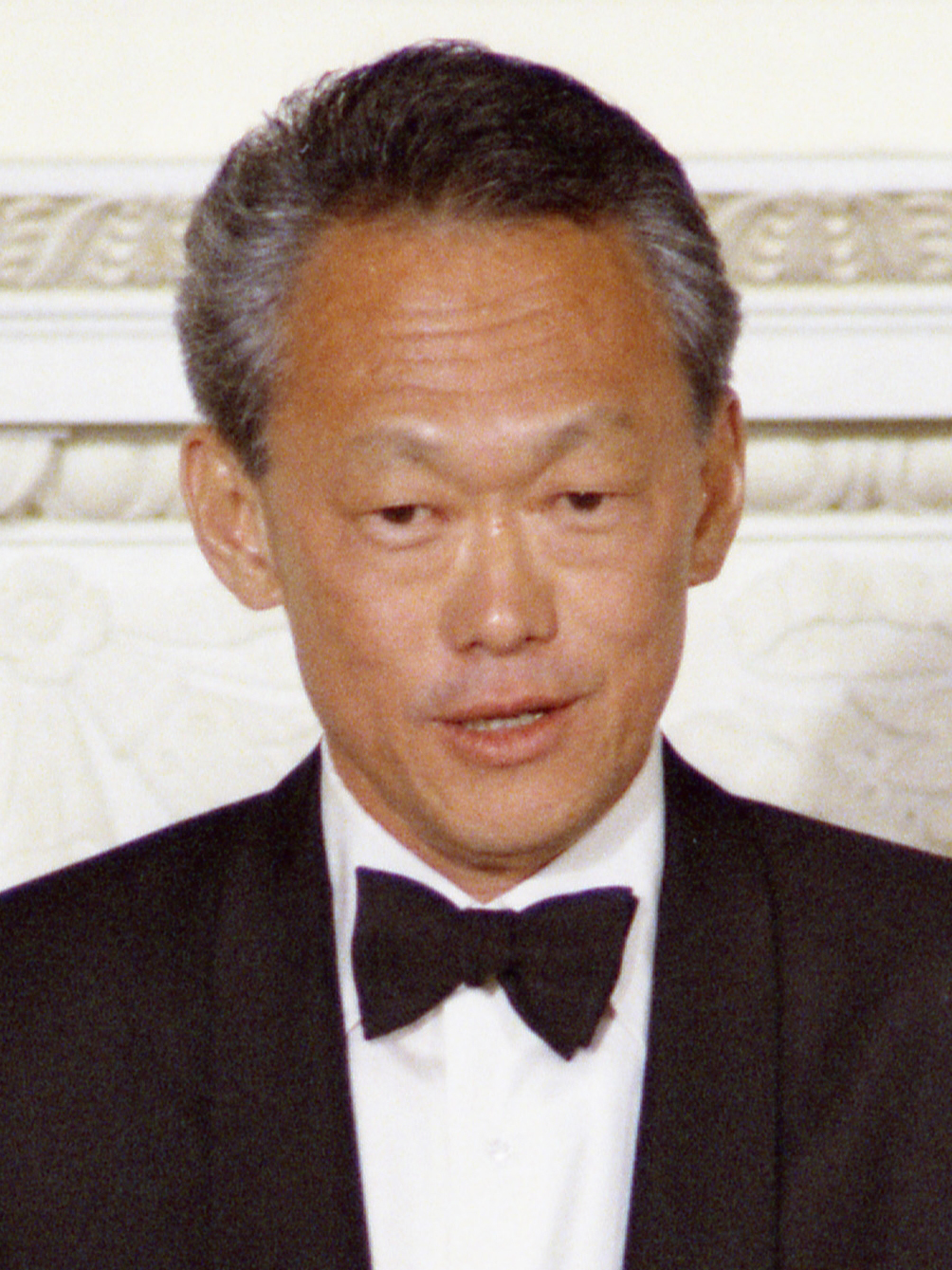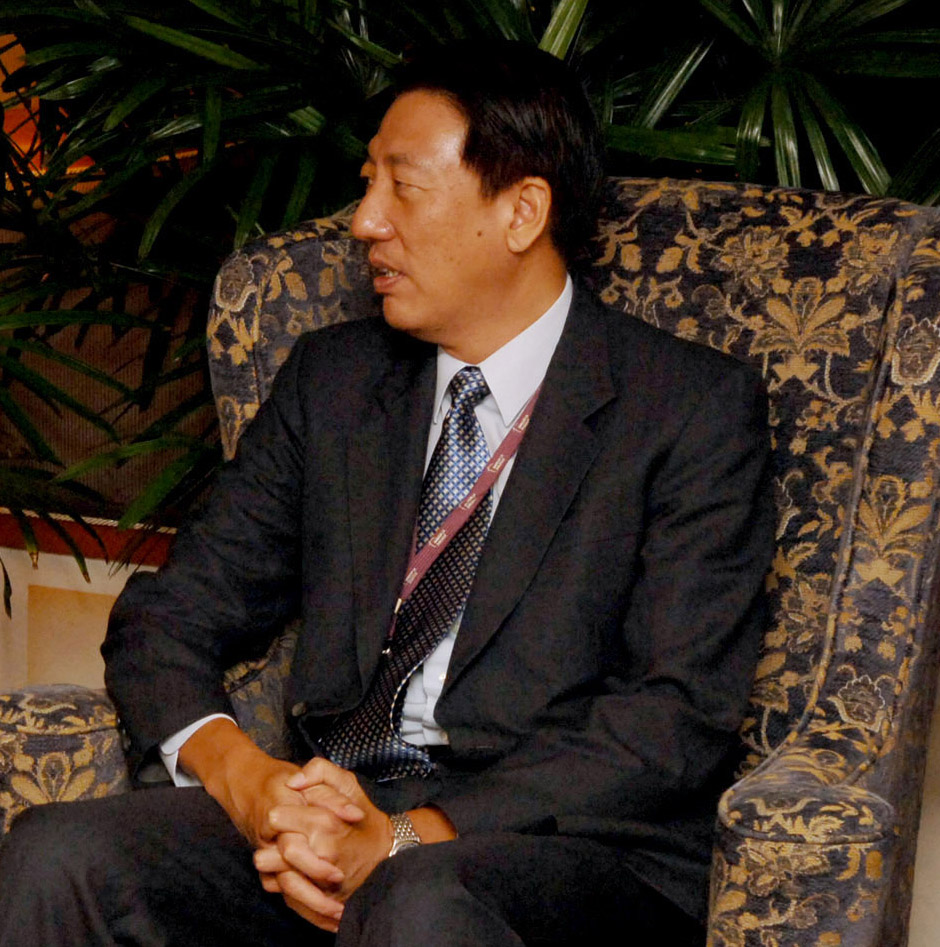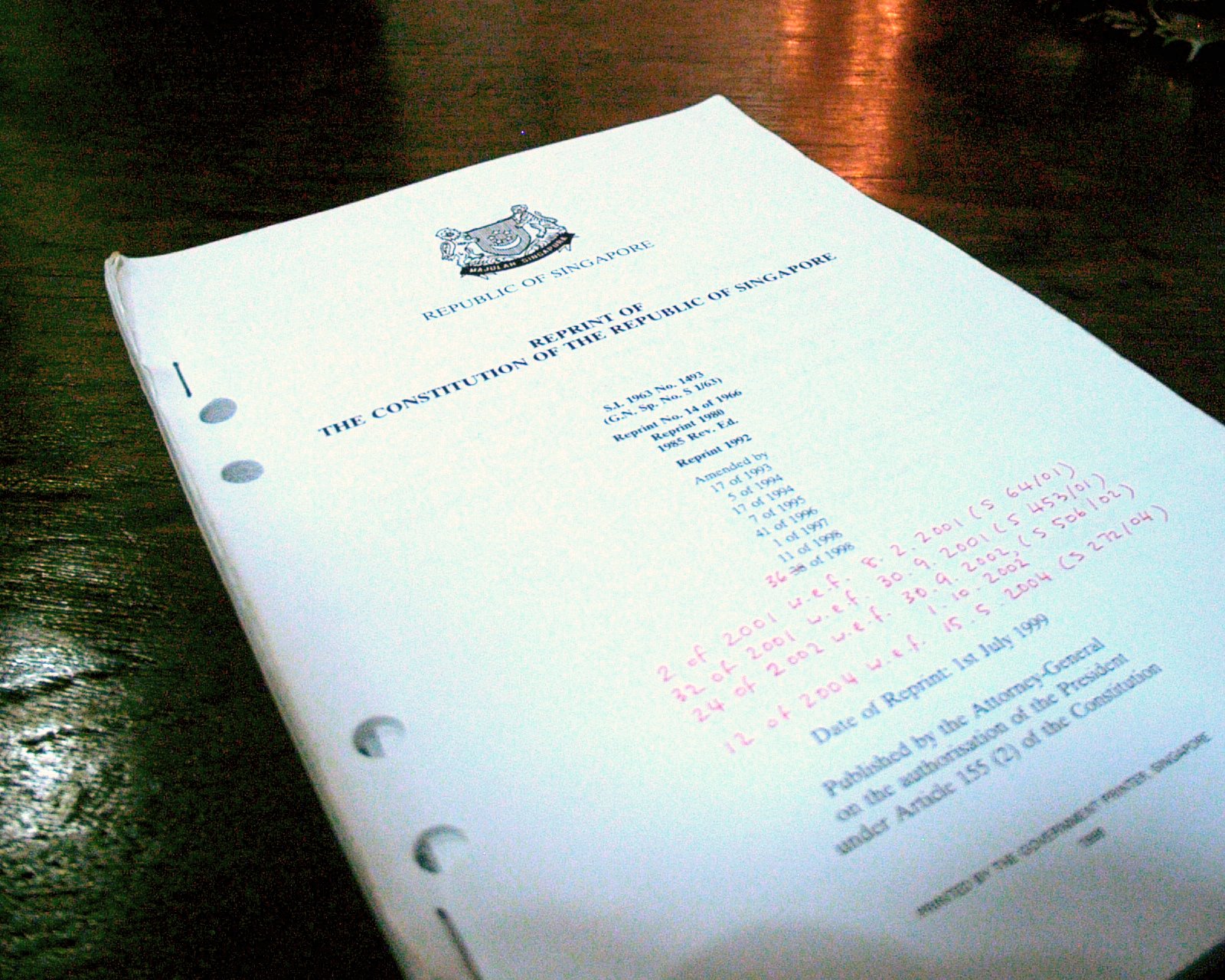|
President Of Singapore
The president of Singapore is the head of state of the Singapore, Republic of Singapore. The role of the president is to safeguard the Reserves of the Government of Singapore, reserves and the integrity of the Singapore Civil Service, public service. The presidency is largely ceremonial, with the Cabinet of Singapore, Cabinet led by the Prime Minister of Singapore, prime minister having the general direction and control of the Government of Singapore, government. The incumbent president is Halimah Yacob, who took office on 14 September 2017. She is also the first female president in the country's history. History The office of the ''President of the Republic of Singapore'' was created on 9 August 1965 when Singapore achieved independence from Malaysia. It replaced the office of Yang di-Pertuan Negara which was created when Singapore attained Self-governance of Singapore, self-governance from the United Kingdom in 1959. The last Yang di-Pertuan Negara, Yusof Ishak, became the first ... [...More Info...] [...Related Items...] OR: [Wikipedia] [Google] [Baidu] |
Halimah Yacob
Halimah Yacob (Jawi script: ; born 23 August 1954) is a Singaporean politician and former lawyer who has been serving as the eighth president of Singapore since 2017. Prior to her presidency, she was the country's Speaker of the Parliament of Singapore, parliament speaker. She is also the first female president in Singapore's history. A former member of the governing People's Action Party (PAP), she was the Parliament of Singapore, Member of Parliament (MP) representing the Bukit Batok East ward of Jurong Group Representation Constituency, Jurong GRC between 2001 and 2015, and the Marsiling ward of Marsiling–Yew Tee Group Representation Constituency, Marsiling–Yew Tee GRC between 2015 and 2017. She resigned from the party and became an Independent politician, independent to run for the 2017 Singapore presidential election, 2017 presidential election and won an uncontested election after the other candidates except for her did not meet the criteria to qualify. The electio ... [...More Info...] [...Related Items...] OR: [Wikipedia] [Google] [Baidu] |
Yang Di-Pertuan Negara
Yang di-Pertuan Negara (English: (he) who is Lord of the State) is a title for the head of state in certain Malay language, Malay-speaking countries, and has been used as an official title at various times in Brunei and Singapore. Sabah The head of state of Sabah was once known as ''Yang Di-Pertua Negara'' and later known as ''Yang Di-Pertua Negeri''. Singapore Background Following revisions to the Constitution of Singapore, Constitution in 1959, which granted Singapore self-governance from the United Kingdom, the ceremonial office of ''Yang di-Pertuan Negara'' replaced the colonial office of Governor of Singapore, Governor as the representative of the British monarch in Singapore. Although the ''Yang di-Pertuan Negara'' was the title for the head of state A head of state (or chief of state) is the public persona who officially embodies a state Foakes, pp. 110–11 " he head of statebeing an embodiment of the State itself or representatitve of its international pers ... [...More Info...] [...Related Items...] OR: [Wikipedia] [Google] [Baidu] |
Deputy Prime Minister (Singapore)
The prime minister of Singapore is the head of government of the Republic of Singapore. The president appoints the prime minister, a Member of Parliament (MP) who in their opinion, is most likely to command the confidence of the majority of MPs. The incumbent prime minister is Lee Hsien Loong, who took office on 12 August 2004. As Singapore is modelled after the Westminster system, the prime minister only governs with the confidence of the majority in Parliament; as such, the prime minister typically sits as a Member of Parliament (MP) and leads the largest party or a coalition of parties. In practice, the prime minister is the leader of the political party with the majority number of elected MPs. History The office of Prime Minister succeeded the office of Chief Minister in 1959 after Singapore had attained self-governance from the United Kingdom, as the State of Singapore, with Lee Kuan Yew being sworn in as the first prime minister on 5 June 1959. The title of prime minis ... [...More Info...] [...Related Items...] OR: [Wikipedia] [Google] [Baidu] |
Ong Teng Cheong
Ong Teng Cheong ( zh, c=王鼎昌, p=Wáng Dǐngchāng; 22 January 1936 – 8 February 2002) was a Singaporean politician who served as the fifth president of Singapore between 1993 and 1999. He was also the first elected president in Singapore's history. He decided not to run for a second term as president in 1999 partially due to the death of his wife. A former member of the governing People's Action Party (PAP) and Ong served as Chairman of the People's Action Party between 1981 and 1993, after Toh Chin Chye stepped down from the position. He was the Member of Parliament (MP) for Kim Keat SMC between 1972 and 1991, and Toa Payoh GRC between 1991 and 1993. He also served as Minister for Information, Communications and the Arts between 1978 and 1981, Minister for Manpower between 1981 and 1983, and Deputy Prime Minister between 1985 and 1993. Ong resigned from the PAP and his political positions and contested in the 1993 presidential election as an independent candidate a ... [...More Info...] [...Related Items...] OR: [Wikipedia] [Google] [Baidu] |
Corrupt Practices Investigation Bureau
The Corrupt Practices Investigation Bureau (CPIB) is a government agency in Singapore under the Prime Minister's Office (PMO). The CPIB has the mandate to investigate into any acts or forms of corruption in the public and private sectors in Singapore, and in the course of doing so, any other offences under any written law. The CPIB was established in 1952 and placed under the purview of the Attorney-General at that time. Having been under the Ministry of Home Affairs (MHA) during its earlier years, the Bureau has remained under the purview of the Prime Minister's Office (PMO) since 1969. The CPIB operates with functional independence, and is headed by a director who reports directly to the Prime Minister. The CPIB may also, in the course of its investigations, come across cases which reveal corruption-prone areas or loopholes in procedures in government departments. Based on its findings, CPIB may review the department concerned and recommend changes in their procedures. In add ... [...More Info...] [...Related Items...] OR: [Wikipedia] [Google] [Baidu] |
Maintenance Of Religious Harmony Act
The Maintenance of Religious Harmony Act 1990 ("MRHA") is a Singapore statute which, according to its long title, provides for the maintenance of religious harmony, for the establishment of a Presidential Council for Religious Harmony ("PCRH"), and for matters connected therewith. The Act, which was passed on 9 November 1990 and came into force on 31 March 1992, empowers the Minister for Home Affairs to make a restraining order against a person who is in a position of authority in any religious group or institution if the Minister is satisfied that the person has committed or is attempting to commit any of the following acts: causing feelings of enmity, hatred, ill-will or hostility between different religious groups; or promoting a political cause, carrying out subversive activities, or exciting disaffection against the President or the Government under the guise of propagating or practising a religious belief. A restraining order may also be made against a person who incites, ... [...More Info...] [...Related Items...] OR: [Wikipedia] [Google] [Baidu] |
Internal Security Act (Singapore)
The Internal Security Act 1960 (ISA) of Singapore is a statute that grants the executive power to enforce preventive detention, prevent subversion, suppress organized violence against persons and property, and do other things incidental to the internal security of Singapore. The present Act was originally enacted by the Parliament of Malaysia as the Internal Security Act 1960 (No. 18 of 1960), and extended to Singapore on 16 September 1963 when Singapore was a state of the Federation of Malaysia. Before a person can be detained under the ISA by the Minister for Home Affairs, the President must be satisfied that such detention is necessary for the purposes of national security or public order. In the landmark case of ''Chng Suan Tze v. Minister for Home Affairs'' (1988), the Court of Appeal sought to impose legal limits on the power of preventive detention by requiring the Government to adduce objective facts which justified the President's satisfaction. Two months after the ... [...More Info...] [...Related Items...] OR: [Wikipedia] [Google] [Baidu] |
Veto
A veto is a legal power to unilaterally stop an official action. In the most typical case, a president or monarch vetoes a bill to stop it from becoming law. In many countries, veto powers are established in the country's constitution. Veto powers are also found at other levels of government, such as in state, provincial or local government, and in international bodies. Some vetoes can be overcome, often by a supermajority vote: in the United States, a two-thirds vote of the House and Senate can override a presidential veto. Article I, Section 7, Clause 2 of the United States Constitution Some vetoes, however, are absolute and cannot be overridden. For example, in the United Nations Security Council, the permanent members ( China, France, Russia, the United Kingdom, and the United States) have an absolute veto over any Security Council resolution. In many cases, the veto power can only be used to prevent changes to the status quo. But some veto powers also include the ... [...More Info...] [...Related Items...] OR: [Wikipedia] [Google] [Baidu] |
Constitution Of Singapore
The Constitution of the Republic of Singapore is the supreme law of Singapore. A written constitution, the text which took effect on 9 August 1965 is derived from the Constitution of the State of Singapore 1963, provisions of the Federal Constitution of Malaysia made applicable to Singapore by the , and the Republic of Singapore Independence Act itself. The text of the Constitution is one of the legally binding sources of constitutional law in Singapore, the others being judicial interpretations of the Constitution, and certain other statutes. Non-binding sources are influences on constitutional law such as soft law, constitutional conventions, and public international law. In the exercise of its original jurisdiction – that is, its power to hear cases for the first time – the High Court carries out two types of judicial review: judicial review of legislation, and judicial review of administrative acts. Although in a 1980 case the Privy Council held that the fundamenta ... [...More Info...] [...Related Items...] OR: [Wikipedia] [Google] [Baidu] |
Wee Kim Wee
Wee Kim Wee ( zh, s=黄金辉, poj=Ûiⁿ Kim-hui, p=Huáng Jīnhuī, first=s,poj,p; 4 November 1915 – 2 May 2005) was a Singaporean journalist and diplomat who served as the fourth president of Singapore from 1985 until his resignation in 1993. Prior to his presidency, Wee served as Singapore's High Commissioner to Malaysia between 1973 and 1980, Ambassador to Japan between 1980 and 1984, and Ambassador to the Republic of Korea between 1981 and 1984 before being elected by the Parliament. For the ensuing initial presidential election, the first in Singapore to be decided by popular vote, Wee decided not to contest and retired after his second term had ended. He is also the first president to exercise custodial powers pursuant to the constitutional amendments in the Singapore's history. Wee died of prostate cancer in his home at Siglap Plain in Singapore on 2 May 2005, at the age of 89. Early life and education Born in Singapore on 4 November 1915, Wee Kim Wee was the s ... [...More Info...] [...Related Items...] OR: [Wikipedia] [Google] [Baidu] |
Goh Chok Tong
Goh Chok Tong (; born 20 May 1941) is a Singaporean former politician who served as Prime Minister of Singapore between 1990 and 2004, and Secretary-General of the People's Action Party between 1992 and 2004. He was the Parliament of Singapore, Member of Parliament (MP) for Marine Parade Single Member Constituency, Marine Parade SMC between 1976 and 1988, and Marine Parade Group Representation Constituency, Marine Parade GRC between 1988 and 2020. Prior to his appointment as prime minister, he was the country's Deputy Prime Minister of Singapore, deputy prime minister, where he advocated for the Medisave, a scheme that allows Singaporeans to set aside part of their income into a Medisave account to meet future medical expenses. Goh also advocated for the Edusave Awards, a monetary reward for students who did well in school based on either their academic or character, to enshrine meritocracy. During his tenure as prime minister, political reforms like the introduction of Non-co ... [...More Info...] [...Related Items...] OR: [Wikipedia] [Google] [Baidu] |
Devan Nair
Chengara Veetil Devan Nair (5 August 1923 – 6 December 2005), also known as C. V. Devan Nair and better known simply as Devan Nair, was a Malaysian-Singaporean politician who served as the third president of Singapore from 1981 until his resignation in 1985. Nair was a communist as a young adult, having been affiliated with the Malayan Communist Party. He harboured anti-colonial sentiments and aspired self-determination of Singapore, which was then a British colony. These caused him to be detained by the British colonial authorities in 1951. In 1954, he joined the People's Action Party, which was more leftist at the time. He was detained again in 1956, and remained so until the PAP won the 1959 general election and helped secure his release. During his parliamentary career, Nair was the Member of Parliament (MP) for the Malaysian constituency of Bangsar between 1964 and 1969 and for the Singapore constituency of Anson between 1979 and 1981. Prior to his presidency, Nair was ... [...More Info...] [...Related Items...] OR: [Wikipedia] [Google] [Baidu] |







